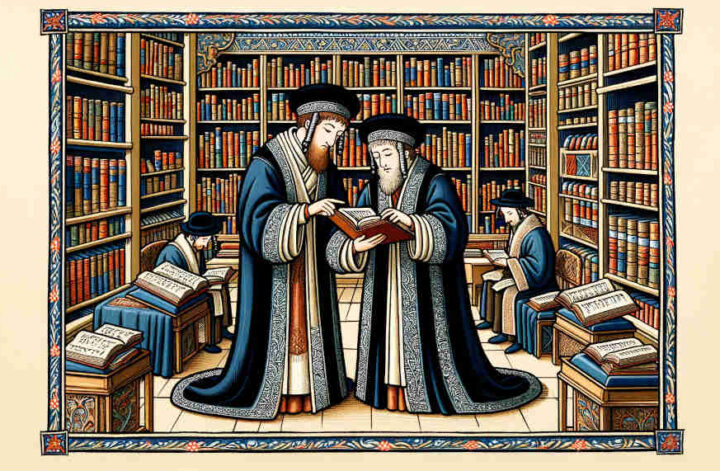Email from Alex Cohen:
Dear Rabbi Joshua,
I recently read a statement that says, “Sanhedrin 55b: A Jew may marry a three-year-old girl (specifically, three years ‘and a day’ old).” This has caused me significant distress, and I am seeking to understand if this is genuinely part of the Talmud.
Best regards,
Alex Cohen
Exploring the Text of Sanhedrin 55b
Dear Alex,
Your concern and distress regarding this topic are completely understandable. It is essential to approach such statements with a desire for truth and context, particularly when they involve complex and ancient texts like the Talmud.
About Sanhedrin 55b: The Talmudic tractate Sanhedrin does contain a discussion in 55b that has been subject to much misunderstanding and misinterpretation. This passage, in its historical and cultural context, is part of a legal discussion about the age at which a person becomes legally culpable for their actions under Jewish law, and not a prescription or endorsement of marriage at such a young age.
Historical and Cultural Context: It’s crucial to understand the Talmud within its historical context. The discussions in the Talmud often pertain to theoretical legal situations, not endorsements or encouragements of such actions. In the ancient world, societies had very different understandings of age, maturity, and legal responsibility. The Talmud’s discussions reflect the attempt of the sages to grapple with and codify laws in their historical and societal context.
Jewish Law and Ethics: In contemporary Jewish practice, the idea of marrying a child is unequivocally rejected and is contrary to Jewish ethics and law. Jewish law adheres to the legal standards of the societies in which Jews live, in addition to its own ethical teachings that prioritize the protection and well-being of children.
Approach to Talmudic Study: Studying the Talmud requires careful consideration of its language, context, and the broader principles of Jewish ethics and law. Simplistic readings of complex legal discussions can lead to significant misunderstandings. It is always advisable to consult knowledgeable scholars or authoritative translations and commentaries when exploring Talmudic texts.
In conclusion, Alex, the passage in Sanhedrin 55b is a complex legal discussion and should not be taken as a straightforward endorsement of the actions described therein. It does not reflect contemporary Jewish practice or ethics. Your pursuit of understanding in the face of troubling claims is commendable, and I hope this explanation offers clarity and alleviates your concerns.
With blessings and in the pursuit of accurate understanding,
Rabbi Joshua



